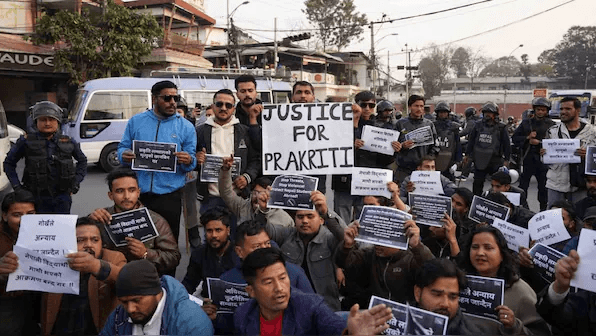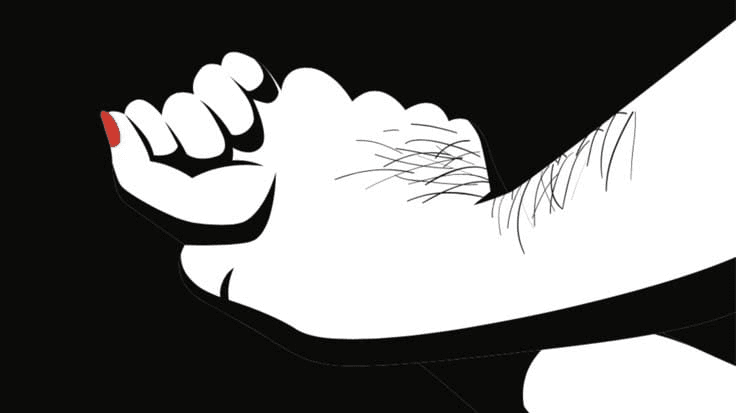 अधर्मेण जयन्लोकान् धर्मं संत्यज्य यः पतिः ।
अधर्मेण जयन्लोकान् धर्मं संत्यज्य यः पतिः ।
स राजा नरकं याति प्रजाहन्ति हि सानृतम् ॥
A king (or leader) who abandons righteousness and conquers through unjust means leads his people to ruin and himself to hell.
Mahabharata – Udyoga Parva (5.35.58)
On the 8th of July 2025, Shiv Sena MLA Sanjay Gaikwad was seen slapping and punching the canteen staff because of rotten 'Dal' being served to him. This has created an uproar amongst citizens.
How does this one incident capture India's two major problems, which still need to be addressed? Let's discuss them one by one.
An MLA is a public servant, and now the question is, what is a public servant?
as per
The Prevention of Corruption Act 1988 (amended 2018) section 2(C)
IPC 1860 - sec 21(12)(a) and ;
Judicial confirmation by the Supreme Court in
RS Nayak vs AR Antulay (1984) 2SCC 183 and;
PV Narsimha Rao vs State (CBI/SPE) (1988) 4SCC 626
"A Member of the Legislative Assembly (MLA) is a public servant, as defined under Section 2(c)(viii) of the Prevention of Corruption Act, 1988, being an elected representative of a State Legislature.
Though not directly mentioned in Section 21 of the Indian Penal Code, 1860, an MLA is judicially recognised as a public servant by being remunerated from the state exchequer and entrusted with constitutional and statutory public duties.
This position has been affirmed by the Honourable Supreme Court in R.S. Nayak v. A.R. Antulay and P.V. Narasimha Rao v. State (CBI/SPE), which established that MLAs are accountable under criminal law as public functionaries, particularly in cases involving misuse of office, corruption, or abuse of power"
One thing that is important to note is that being an MLA does not mean
MLAs do not enjoy immunity from laws outside the legislative domain.
Public servants, including MLAs, can be arrested and tried under normal criminal procedure.
In the video that has surfaced on the internet, the MLA is seen breaching IPC section 352 (Assault), 506 (criminal intimidation), 166(abuse of official position), and 504(intentional insult).
BNS section 214(1)(b) - abuse of power as public servant
BNS section 353 - intentional insult to provoke breach of peace;
are also violated.
Not to mention that if the incident is found to be aggravated/ repeated, more serious charges can be invoked, such as section 323 (voluntarily causing hurt).
Such incidents of use of physical force, targeting public officials and breach of IPC sections among MLAs are not new. Some notable examples of such incidents are:-
Akash Vijayvargiya (BJP MLA, Madhya Pradesh – June 2019) - Assaulted a municipal officer during an anti-encroachment drive using a cricket bat.
Som Dutt (AAP MLA, Delhi – 2015 Campaign) - Convicted and sentenced to 6 months in jail + ₹2 lakh fine for attacking a man with a baseball bat during an election campaign.
Banothu Shankar Naik (TRS MLA, Telangana – July 2017) - During a public programme, Naik grabbed the arm of District Collector Preeti Meena, hurrying her forward. Booked under Sections 353 (assault/criminal force to deter public servant) and 354 (assault to outrage modesty)
Harsh Vijay Gehlot, Congress MLA from Saliana (Ratlam district, MP) - Gehlot approached the SDM to submit a memorandum during the rally. When she delayed, he publicly threatened her, saying, “You are a woman. Had you not been a woman I would have held you by the collar and then handed you the memo.”
For instance, if a public worker uses his powers unlawfully, in India, he might be faced with about 3 months of imprisonment and a fine of rupees 1000, whereas in the US, the same person would face life imprisonment or, in worst cases, a death sentence.
FOOD SAFETY IN INDIA
The MLA was served rotten Dal, which was inedible. Despite the availability of laws like the FSSA (Food Safety and Standards Act 2006) and the FSSAI (Food Safety and Standards Authority of India). Most restaurants in India do not have proper licensing, and continue to serve customers unhealthy and inedible food.
If a restaurant is found serving unhealthy or unhygienic food, especially if found to be unlicensed, the party responsible can be booked under:-
Sec 63 (operating without license), sec 59(1) injury caused by unsafe food, 26(2) prohibition on manufacturing/ selling unsafe food of the FSSA and sections 106 (negligent act likely to spread infection), 111 (death by negligence), 117 (endangering life by negligent act), 73 (public nuisance) of the BNS.
A 2018 survey by FSSAI found that 30–40% of restaurants listed on delivery platforms (Zomato, Swiggy, Uber Eats, etc.) were operating without any FSSAI registration or license.
According to the FSSAI Compliance Index (2023), the average compliance score (including proper licensing, inspections, etc.) across major states dropped from 16/30 in 2019 to 11/28 in 2023, suggesting widespread non-compliance.
About 100-200 people die every year from food poisoning, compared to just 35 in Japan. People might argue about the population; however, the most valid counterargument is that in India, most of these deaths go unaccounted, and India’s numbers are likely vastly underreported due to limited monitoring and data collection, whereas Lower reported rates in developed nations often reflect better diagnostics and reporting systems.
All of these situations have led to international scrutiny regarding hygiene and have downgraded India's reputation.
To better understand the gaps in India’s food safety regime, it is essential to examine how regulatory frameworks in other countries address similar challenges.
Bluebell Creameries (2015), United States of America - Sold contaminated ice cream containing Listeria, causing 3 deaths and multiple hospitalisations. What was the action taken? Nationwide recall of all products, the CEO criminally charged, and given a 17.25 million dollar penalty.
Kushikatsu Daruma (2022), Osaka, Japan - Customers reported vomiting, diarrhoea, and food poisoning after eating contaminated ingredients. Action taken? The restaurant's licence was suspended immediately, the Chain issued a public apology, and the names of the owners were revealed, creating public disgrace.
Shawarma Death in Kerala (May 2022) - A 16-year-old girl died after eating spoiled shawarma from an eatery in Kasargod district. Action taken? The restaurant was closed temporarily, the owner was arrested and then released briefly, no national-level alert, and no permanent cancellation of the license.
Developed economies have come up with more robust and stringent laws.
In this era of the internet and high rates of western culture adoption in India, where almost every teenager is moving towards wearing oversized clothing, embracing the "prom" culture, idolising American and foreign influencers, why aren't we able to do the same when it comes to the implementation of laws?
While we often mock imitation, we must ask — if emulating global best practices improves public safety and governance, isn’t that a copy worth making?
The article examined how a single act of misconduct by a public official can unveil two of India’s pressing governance failures, lack of accountability among public servants and dangerous lapses in food safety regulation. Through comparative analysis with developed nations, it is evident that India’s enforcement mechanisms, while legally existent, lack the rigour and urgency needed to prevent repeat violations. Reforms must not only be legal but also cultural.
Written by Soumil Krishn Sharma


